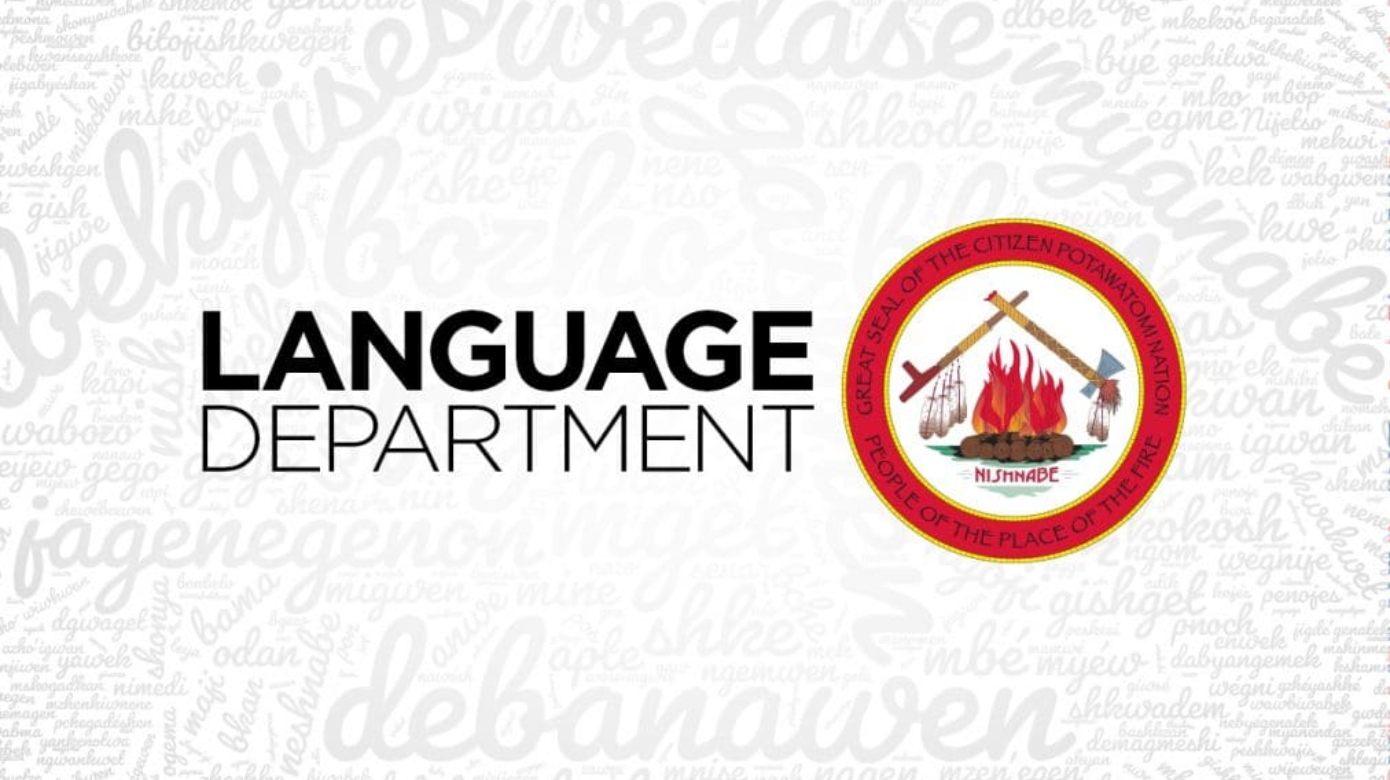By Justin Neely, CPN Language Department Director
Bozho jayek
(Hello everyone),
We are still working on getting our children’s books out. So, if you signed up, be patient. We are working on the most cost-efficient way to send them out. We hope to have them going out later this month. We have started another school year offering the language in high schools in Oklahoma. We currently have students at Shawnee High School, Tecumseh High School, Seminole High School and also Shawnee Middle School. We are also offering the language at several universities where there are large numbers of Citizen Potawatomi students.
I have been asked to join a panel discussion at the 54th annual Algonquian Conference in Colorado and am also going to be talking at the Algonquian Fair hosted by the Sac & Fox Nation.
We are working on our next online course to be offered through the same site we are using for our high school students and hope to have a version of it available by the end of the month. We also have a ton of other tools like two YouTube channels, Woolaroo (a Google image recognition software) and an older Moodle course as well as the Potawatomi Language Facebook group.
I would like to share some sentences that come from a variety of sources of first language speakers. That way you can learn some new vocabulary and enhance your Potawatomi Language learning.
Jayek tepntemwat égi mbomget égi gdemagsiwat. Mine wshonyamwa égi bnajtowat.
Everything they had died off and they became poor. Also they lost all their money.
Iw je égi pkwenshkotwat ni pkweshgasen. Mine I ziwabo apte égi zigwébnak.
So, he stuffed crackers in his mouth. And poured half the cider out.
I je énat ni osen, “Nwi-pabmadzemen neyew gon tepedmek nge-byétomen shode. Éwi wabdemen. Mkekok nge-tomen.”
He told his father, “We are going to make a trip for four days and we will bring our valuables here. So, you can watch them. We will have them in a box.”
“Cho she kwech, bgéji nde-ton wa mijyan nawkwek,” énat éspen. Moéwe énatewat, “Wegni je étoyen?”
“Not much, I have a little I am going to eat for lunch,” said the raccoon. The wolf asked him, “What do you have?”
I je ekedot, “Nsese moéwe nwi-nkweshkwa mémejek wi bme-pkede.”
He said, “My brother the wolf I am sure to meet up with, and he will no doubt be hungry.”
“Iw zhye é-mnokmek ggi-ket,” gé na noko. “I je yé i wéch-gche-gzhaték,” é-kedot gigabé.
“It’s getting to be spring, you,” said Grandma. “That’s why it’s getting to be hot,” said the boy.
Gyétnam zhe é-mnewéndek gigabé. Babek gezhép é-dokit.
The boy was very glad. Sure enough, in the morning, he woke up.
Iw gshe zhe gete é-gi-bkedéwat gbé-gizhek. Iw gshe é-gi-gkéndek é-zhewébek é-bkedék gigabé.
Sure enough, they were hungry all day. The boy knew what it was like to be hungry.
“Gde-mgegno zhe na, é-wi-bméndezyen,” é-nat ossesen mdemozé.
“You are big enough you can take care of yourself,” the old woman said to her grandchild.
Gete se é-mnewéndek gigabé é-wi-tot wa-je-bbonshet.
The boy was very happy to have a place where he would spend the winter.
Iw
(End).

